Gas Chromatography - Mass Spectrometry
Agilent 6890 GC with a 5973 Mass Spectrometer
Our Agilent 6890 GC includes a 150-sample autosampler, split/splitless injector, capillary column, and a 5973 single quadrupole mass spectral (MS) detector. The entire system is controlled by Agilent's Chemstation software.
A mixture is injected into the instrument and immediately heated. The gaseous components of the mixture are swept through the column with a gaseous mobile phase. As these components travel through the column, they can interact with the stationary phase, causing them to travel at different speeds, thus becoming separated. Each peak in this chromatogram represents one component of the mixture.
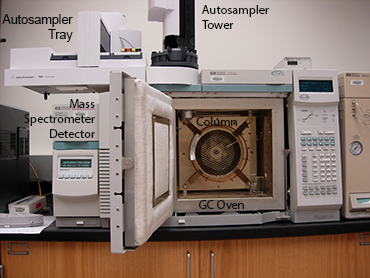
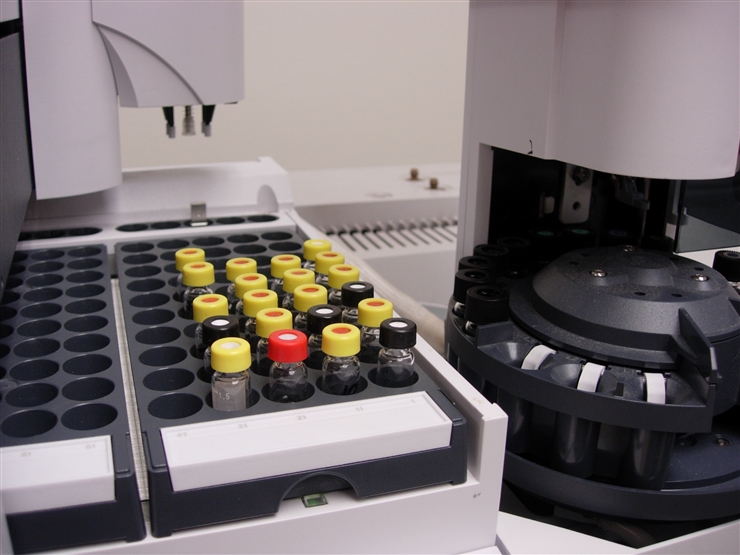
Application
Detection of Cocaine on Paper Currency
To demonstrate the power of GC-MS, we have students shake a $1, $5, $10, or $20 bill with a small volume of methanol in a vial. The methanol extract, containing various compounds extracted from the currency, is injected into the Agilent GC-MS. Each peak on the chromatogram represents one component of the mixture.
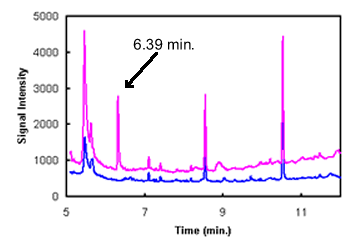
The peak at 6.39 minutes was present for some samples, but not for others. The mass spectrometer detector on this instrument provides information that helps determine the identity of this compound.
This mass spec works by bombarding the sample with a shower of electrons. These electrons cause the compounds to ionize fragment into smaller pieces. Then, the mass spec measures the mass/charge of the fragments. The result is a mass spectrum which shows the abundance of each fragment. This fragmentation pattern is unique to a particular compound and can be used to conclusively identify the compound. Two mass spectra are shown below. The one on the left is the mass spectrum of the peak at 6.39 min. The one on the right is a mass spectrum of a cocaine standard. Pretty similar, eh?
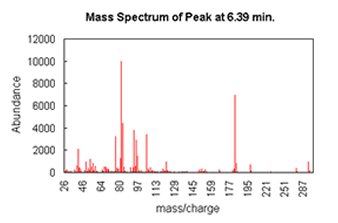
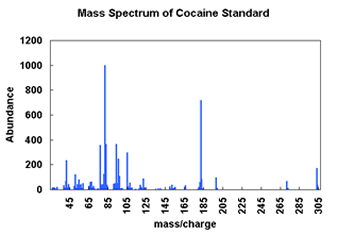
GC-MS is a common, powerful tool in many application areas. Students have opportunities to use this instrument starting in sophomore-level organic chemistry through upper-level courses and perhaps research.






